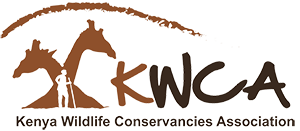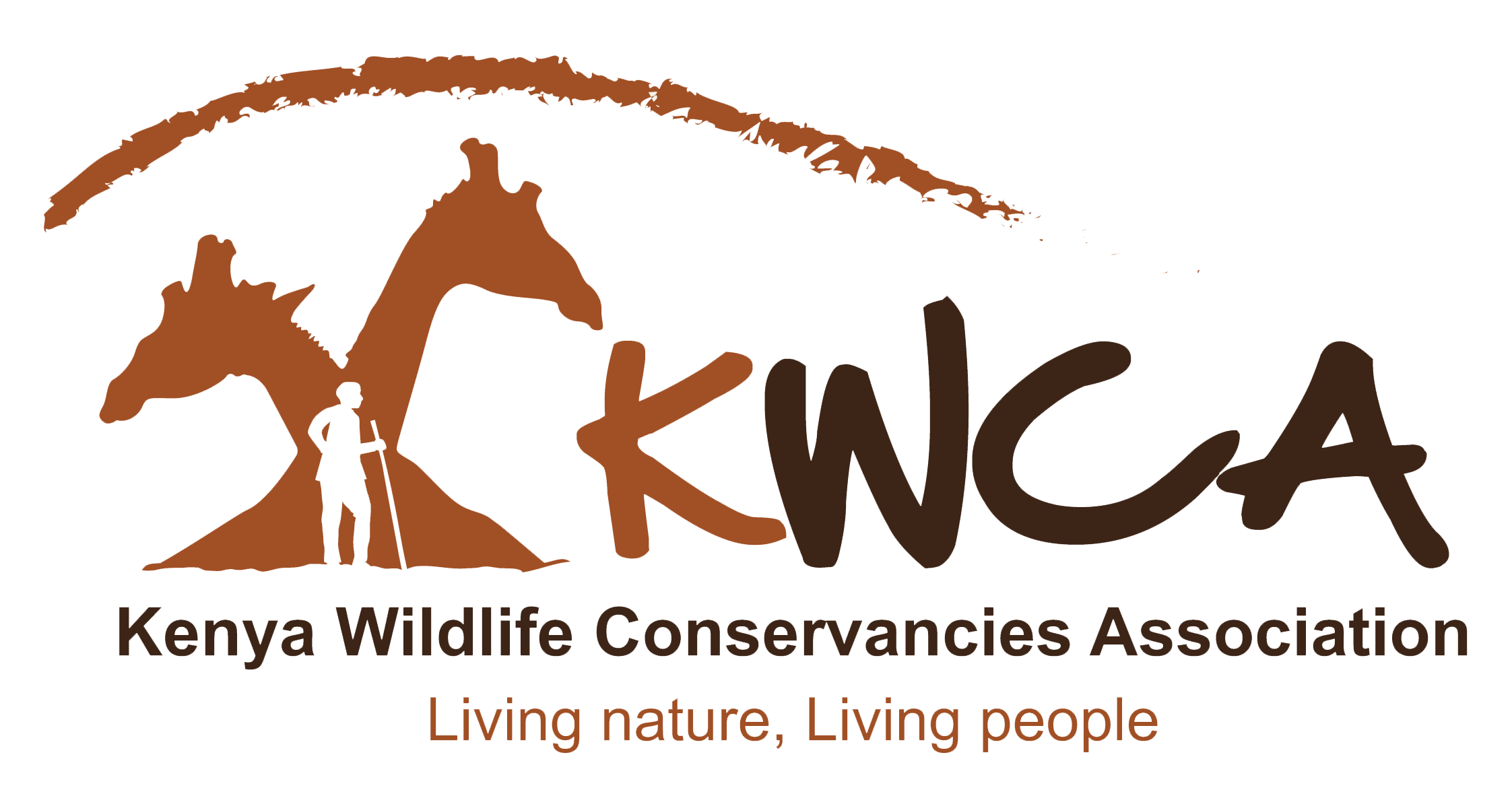Development of a Climate Change Mitigation and Adaptation Strategy & Action Plan
INTRODUCTION
The Kenya Wildlife Conservancies Association (KWCA) is a national landowner-led membership organisation, established in 2013 to serve the collective interests of over 160 community and private conservancies. KWCA works to create an enabling environment for conservancies to thrive by advocating for the right policies, laws, and incentives and supporting them through information sharing, and capacity building. KWCA recognises that conservancies represent a strong mechanism to promote wildlife stewardship and custodianship by local communities and landowners to coexist with wildlife.
Wildlife conservancies constitute the primary stakeholder in KWCA programming. Conservancies are faced with a number of challenges compounded by the impacts of climate change. At the same time, there is clear evidence that the lands managed by conservancies are an effective means of sequestering carbon emissions and diversifying community and indigenous people’s livelihoods from the adverse impacts associated with climate change.
Kenya’s National Climate change action plan (2018-2022) calls for an increase in forest cover to 10% of total land area; rehabilitation of degraded lands, including rangelands; increased resilience of the wildlife and tourism sector. As a key player in the sector, KWCA intends to mainstream climate change mitigation and adaptation in tandem with the national climate change strategy through an institutional strategy.
BACKGROUND
Climate change is one of the greatest and most pervasive threats to biodiversity globally, and Kenya is no exception. Climate change is expected to increase the frequency and severity of extreme weather events (droughts and floods) with limited recovery periods after every event, induce food and water scarcity, intensify human-wildlife conflict, diseases prevalence, reduced crop and livestock production, damage infrastructure, and decline wildlife populations and habitats, conflict, competition for land and rangeland fragmentation and declining coastlines.
Climate variability is causing negative impacts that could inhibit the positive contribution of tourism to Kenya due to wildlife changes in response to climate change. As temperatures rise, the geographical dispersal of flora and fauna will change, as species shift to conditions to which they are better adapted. Given that wildlife resides within communal lands in Kenya, which are in most cases geographically isolated, adaptation or relocation may prove difficult or impossible for many iconic species.
The decline in environmental quality brings social and economic hardship to the conservancies that depend on these ecosystems and increases contestation and the likelihood of conflict over diminishing natural resources. It also creates a window for invasive species, new pests, and diseases. Climate change projections (by 2050; 2080) across Kenya’ and the region’s landscapes are now well understood. Aridity is projected to spread due to changes in temperature and precipitation. In a 4°C world, total hyper-arid and arid areas are projected to expand by 10 percent compared to the 1986–2005 base period (World Bank 2012). Climate change is expected to significantly alter biodiversity as species struggle to adapt to changing conditions (Lovett et al., 2005). Equally, studies by Bhola et al. (2012a and 2012b) reveal how predation risk, forage quantity, and quality, water, competition with and facilitation by livestock interact with individual life-history traits, seasons, and land use in shaping the dynamics of herbivore hotspots in protected and human-dominated savannah.
Environmental threats such as climate change are inseparable from KWCA’s mission to work with landowners and communities to sustainably conserve and manage wildlife and their habitat outside protected areas for the benefit of the people of Kenya. These climatic changes are likely to require communities to develop new adaptation, risk management, and coping strategies.
In the recent past, KWCA has engaged two regional landscapes of Tsavo and Amboseli in strengthening their capacities for climate resilience and adaptation to effectively protect biodiversity and support livelihoods in the regions. In an effort to provide a clear roadmap and modalities of dealing with climate change challenges for its regional associations and members with a view to ensuring climate resilience in the conservancies, KWCA is seeking the services of a consultant to support the development of climate change mitigation and adaptation strategy & action plan. The documents will give a roadmap to KWCA on;
- Establishing/strengthening multi-sectoral coordinated approaches and mechanisms that would strengthen early warning preparedness and planning to the changing climate context
- Identification of climate-vulnerable hotspots across conservancies; related climate risks and how they can be mitigated and integrated into key national and county policies, strategies, and action plans
- Highlight innovative approaches to helping conservancies build adaptive capacities and strengthen climate resilience
- A financing framework for climate change mitigation and adaptation actions.
PURPOSE OF THE CONSULTANCY
The overall objective of this consultancy is to develop a climate change adaptation and mitigation strategy and action plan that includes a clear roadmap to reach the organisation’s goals through programs, research, and advocacy with clear deliverables.
SPECIFIC TASKS FOR THE CONSULTANCY
- Hold an inception meeting with the KWCA management Team to better understand the requirements, priorities, and expectations from the onset.
- Review existing literature on existing policy, legal, regulatory (PLR) and institutional frameworks both at the local, national, international, and regional association levels on climate change adaptation and mitigation measures.
- Conduct a needs assessment and or desk review to identify vulnerable hotspots across the conservancies, constraints and opportunities for climate change resilience and mitigation at the conservancy, landscape, and National level.
- Hold consultations with key stakeholders to identify context-specific climate change situations and adaptation and mitigation approaches at the conservancy, landscape, and national level.
- Develop a climate change adaptation and mitigation strategy and a plan
- Organise a validation session on key stakeholders
DELIVERABLES
- An inception report detailing the methodology.
- First draft Climate Change Mitigation and Adaptation Strategy and plan[1]
- Final Climate Change Mitigation and Adaptation Strategy and an action plan.
REQUIRED SKILLS AND EXPERIENCE
- Advanced university degree in the relevant study area (environmental sciences or related)
- At least 7 years of relevant professional experience in climate change, conservation, and development in developing climate change adaptations and mitigation frameworks.
- Excellent experience in Kenya’s climate change national context.
- Excellent communication and writing skills in English and Swahili.
SUBMISSION OF PROPOSAL
The proposal should demonstrate sound knowledge, technical skills, and capacity as required by the nature of work of the assignment and understanding of the requisite tasks set forth in the scope of work.
Eligible consultants should submit the following;
- Technical and financial proposals
- Date and activity schedule
- CV of designated personnel
- Minimum of 2 recommendations from previous assignments
The proposals should be emailed to [email protected] indicating clearly on the email header the title of the consultancy by 29th April, 2022

